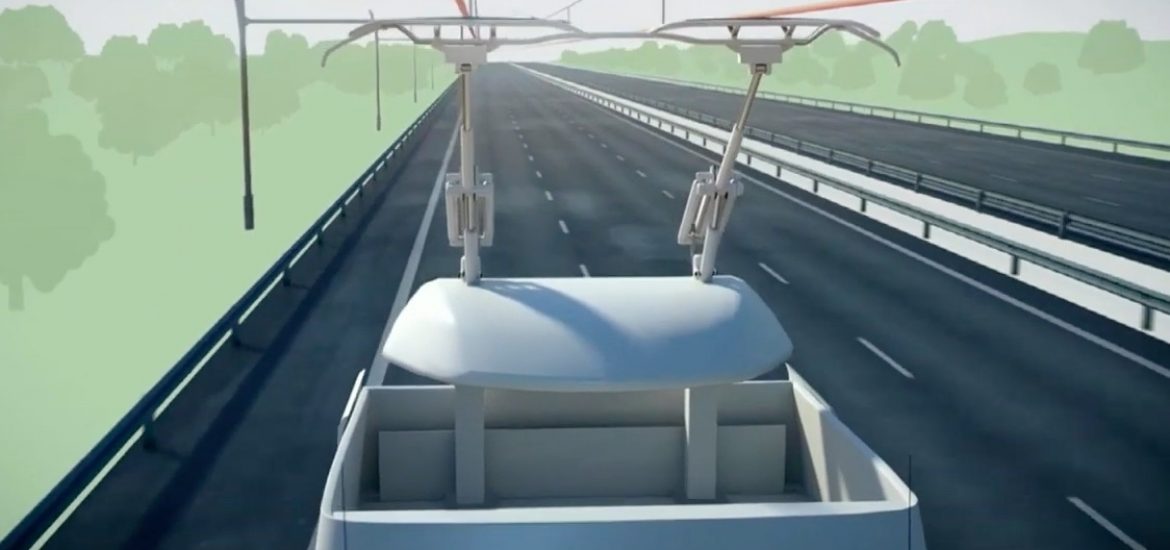
Germany is testing an electric autobahn for heavy goods vehicles as part of a €70-million pilot for specially adapted vehicles to charge from overhead cables on a small section of road.
It is the first test of its kind on a public road in Germany on a 10km stretch between Frankfurt airport, a global freight hub, and an industrial park. Another two stretches of electrified road are due to open soon.
Developed by Siemens Gamesa, it allows vehicles with roof-mounted equipment to hook up to electric lines while travelling at up to 90km per hour.
The 5km eHighway stretch will be tested in both directions until 2022 using renewable electricity, according to Hesse state’s transport department, Hessen Mobil, which conducted years of trials with Siemens.
The technology was initially developed on a disused military airfield near Berlin.
Trucks run on electricity while using the new road and return to a hybrid system after the charging stretch.
Siemens said the system could be implemented within Germany’s current road structure and was, therefore, a practical solution to the issue of emissions, recharging and energy consumption.
A Darmstadt Technical University research team will assess economic and ecological data during the three-year trial.
Berlin is reportedly investing around €70 million in order to develop trucks compatible with the network.
Funding of €15 million came from the Environment Ministry, which already invested €14.6 million in erecting masts, cables and the power infrastructure.
If found feasible, 1,000km of Germany’s 13,000km autobahn network could eventually be fitted with overhead cables, the ministry said.
Siemens said its eHighway system combined the efficiency of electric rail with the flexibility of road transport while being forecast to produce a sharp reduction in carbon dioxide and nitrogen oxides output.
The engineering giant said the system could be integrated with existing road infrastructure to reduce emissions and energy consumption in places where railways were impractical.
Siemens claimed that truck owners could save €20,000 on fuel over 100,000km.
Truck transport is the world’s fastest growing source of oil demand, according to the International Transport Forum at the Organisation for Economic Cooperation and Development.
The projections said road transport of goods would account for 15 per cent of the projected increase in carbon emissions until 2050.
Increased railway and electric vehicle use are seen as vital as Berlin looks to comply with its commitments under the 2015 Paris climate agreement.
“Electrified trucks are a particularly efficient solution on the road to carbon-neutral transport,” said Rita Schwarzelühr-Sutter of the Federal Ministry for the Environment in Berlin.
Tests of eHighway technology have also been conducted in Sweden and near ports in Los Angeles and Long Beach.
Picture credit: YouTube





